
Smarter email, faster business.
Auto-tag, parse, and respond to RFQs, quotes, orders, and more — instantly.
CFM International Prepares for Tariff Effects on LEAP Engine Production
April 28, 2025By ePlane AI
0
0
CFM International
LEAP Engine
Tariffs
More news

ICAO Strengthens Partnerships with European Aviation Leaders to Promote Sustainability and Connectivity
ICAO Strengthens Partnerships with European Aviation Leaders to Promote Sustainability and Connectivity
Aviation leaders from Europe, Central Asia, and North Africa gathered in Paris on 17 June 2025 for the EUR/NAT DGCA Meeting, marking a pivotal moment in regional cooperation. The high-level forum convened over 100 officials representing nearly 50 countries under the theme “Advancing Aviation through People and Partnerships.” Central to the discussions was a collective commitment to realizing the objectives outlined in ICAO’s Strategic Plan 2026–2050.
The meeting underscored the distinctive diversity of the EUR/NAT region, which encompasses Europe, the North Atlantic, Central Asia, and North Africa, highlighting its potential to spearhead the implementation of ICAO’s global priorities. Bilateral engagements with Azerbaijan, Georgia, and Kazakhstan advanced targeted cooperative initiatives, while a new Annex to an existing Memorandum of Understanding with the United Arab Emirates was signed to bolster support for countries facing urgent aviation challenges within the region.
Innovation and Sustainability at the Forefront
Following the momentum generated by the International Paris Air Show, ICAO formalized a new Memorandum of Understanding with a leading European aircraft manufacturer at its Toulouse headquarters. This agreement is designed to stimulate innovation in critical domains such as technical support, capacity-building, and the advancement of sustainable aviation fuels (SAF). The partnership also aligns with ICAO’s Finvest Hub initiative, which aims to finance sustainable aviation solutions, and emphasizes the importance of inspiring the next generation of aviation professionals, with a particular focus on empowering women within the sector.
Despite these promising developments, the strengthened partnerships face considerable challenges. Navigating the intricate regulatory frameworks across multiple jurisdictions, ensuring adherence to diverse national policies, and addressing varying levels of stakeholder readiness to implement sustainability measures remain significant obstacles. Market responses have been mixed, with some airlines expressing skepticism due to operational and financial pressures, while competitors may either collaborate to enhance sustainability or prioritize short-term profitability at the expense of long-term environmental objectives.
Investing in Training and Professional Development
In a further effort to enhance industry capacity, ICAO, in collaboration with the French Civil Aviation Authority (DGAC), launched a Training Fellowship Programme. This initiative is aimed at cultivating aviation skills and professional expertise, particularly in the areas of safety, sustainability, and connectivity, throughout the EUR/NAT region and beyond. The programme seeks to equip aviation professionals with the competencies required to meet the evolving demands of a technologically advanced and environmentally responsible industry.
Embracing Technological Advancement
During the Paris Air Show’s “Industry and Innovation Day,” ICAO leaders engaged with industry executives to explore the integration of artificial intelligence (AI) into aviation systems. These discussions emphasized AI’s potential to enhance efficiency, operational excellence, environmental performance, and safety. By collaborating closely with innovation leaders, ICAO reaffirmed its commitment to harnessing advanced technologies to address both current and future challenges in air transport.
As ICAO deepens its strategic partnerships with European aviation stakeholders, the organization confronts a complex landscape of opportunities and challenges. Progress will depend on balancing ambitious sustainability targets with regulatory complexities, market dynamics, and the necessity for inclusive stakeholder engagement. The initiatives launched in Paris, however, signal a resolute intent to drive innovation, strengthen connectivity, and promote a more sustainable future for global aviation.
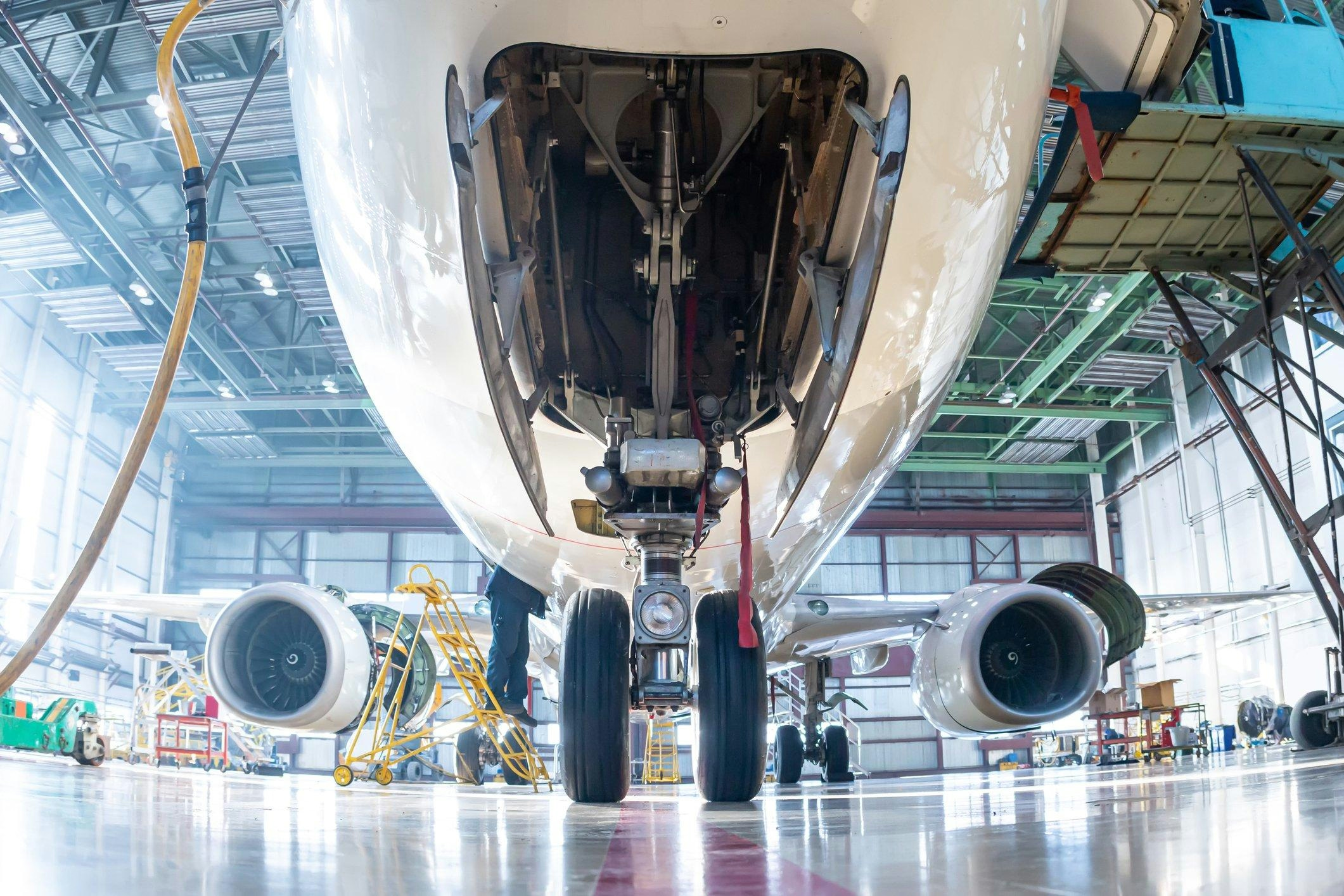
Navigating MRO Compliance in an Increasingly Complex Regulatory Environment
Navigating MRO Compliance in an Increasingly Complex Regulatory Environment
The global Maintenance, Repair, and Overhaul (MRO) sector remains a fundamental pillar of aviation safety and operational reliability. However, it now confronts an unprecedented level of regulatory complexity. As the regulatory environment becomes increasingly intricate, MRO providers must adopt a vigilant and adaptive stance, not only to ensure compliance but also to leverage emerging opportunities driven by digital transformation, sustainability efforts, and regional market expansion.
Expanding Regulatory Challenges and Emerging Technologies
Compliance demands in the MRO sector have evolved far beyond traditional aviation regulations. Operators must now navigate a dynamic and multifaceted array of global requirements, including those imposed by the Federal Aviation Administration (FAA) and the European Union Aviation Safety Agency (EASA). Additionally, new regulatory frameworks are emerging to address cutting-edge technologies such as generative artificial intelligence. The recent formal adoption of the European Union’s AI Act introduces critical compliance deadlines that will affect a broad spectrum of AI applications within aviation and related industries.
Alongside technological considerations, heightened risks surrounding intellectual property protection, regulatory adherence, and strategic alignment have become increasingly prominent. Industry analyses, such as those from PwC, emphasize the necessity for companies—including those in the MRO sector—to revise internal processes and invest in comprehensive supervisor training. This is particularly crucial as the aviation supply chain becomes more interconnected with other high-risk industries like biotechnology and pharmaceuticals, where complex regulatory environments and innovation pressures demand robust compliance frameworks and strategic mergers and acquisitions.
Geopolitical and Trade Policy Impacts on Compliance
Geopolitical developments and shifting trade policies further complicate the MRO compliance landscape. The forthcoming 2025 amendment to the US-EU Bilateral Aviation Safety Agreement (BASA) mandates that US-based repair stations holding EASA Part 145 approvals implement comprehensive safety management systems (SMS). Concurrently, global tariff policies remain volatile. The United States has recently imposed, adjusted, or temporarily suspended tariffs on aircraft components, steel, aluminum, and other materials, prompting reciprocal actions from international trading partners. These rapid policy shifts have introduced significant price volatility, complicating long-term financial planning for MRO operators.
Historically, the aviation industry benefited from duty-free provisions under the 1980 Agreement on Trade in Civil Aircraft. While some exceptions persist, the current environment is marked by increased unpredictability, compelling MRO providers to maintain vigilant monitoring and proactive anticipation of regulatory changes.
Financial institutions and other stakeholders within the aviation supply chain are also grappling with the repercussions of these developments. Rising financial crime risks have necessitated enhanced onboarding procedures to comply with regulations such as the European Union’s Anti-Money Laundering (AML) Directive. Banks and financial entities must carefully balance stringent compliance requirements with the imperative to preserve customer trust.
Strategic Approaches to Compliance and Market Opportunities
In order to effectively manage these multifaceted challenges and capitalize on market opportunities amid significant operational backlogs, MRO businesses must embrace a proactive and cross-functional approach to compliance. This strategy involves close collaboration among business, commercial, and legal teams, continuous process refinement, and targeted training initiatives. By anticipating regulatory developments and aligning organizational strategies accordingly, MRO providers can successfully navigate the evolving regulatory landscape and sustain their vital role within the global aviation ecosystem.
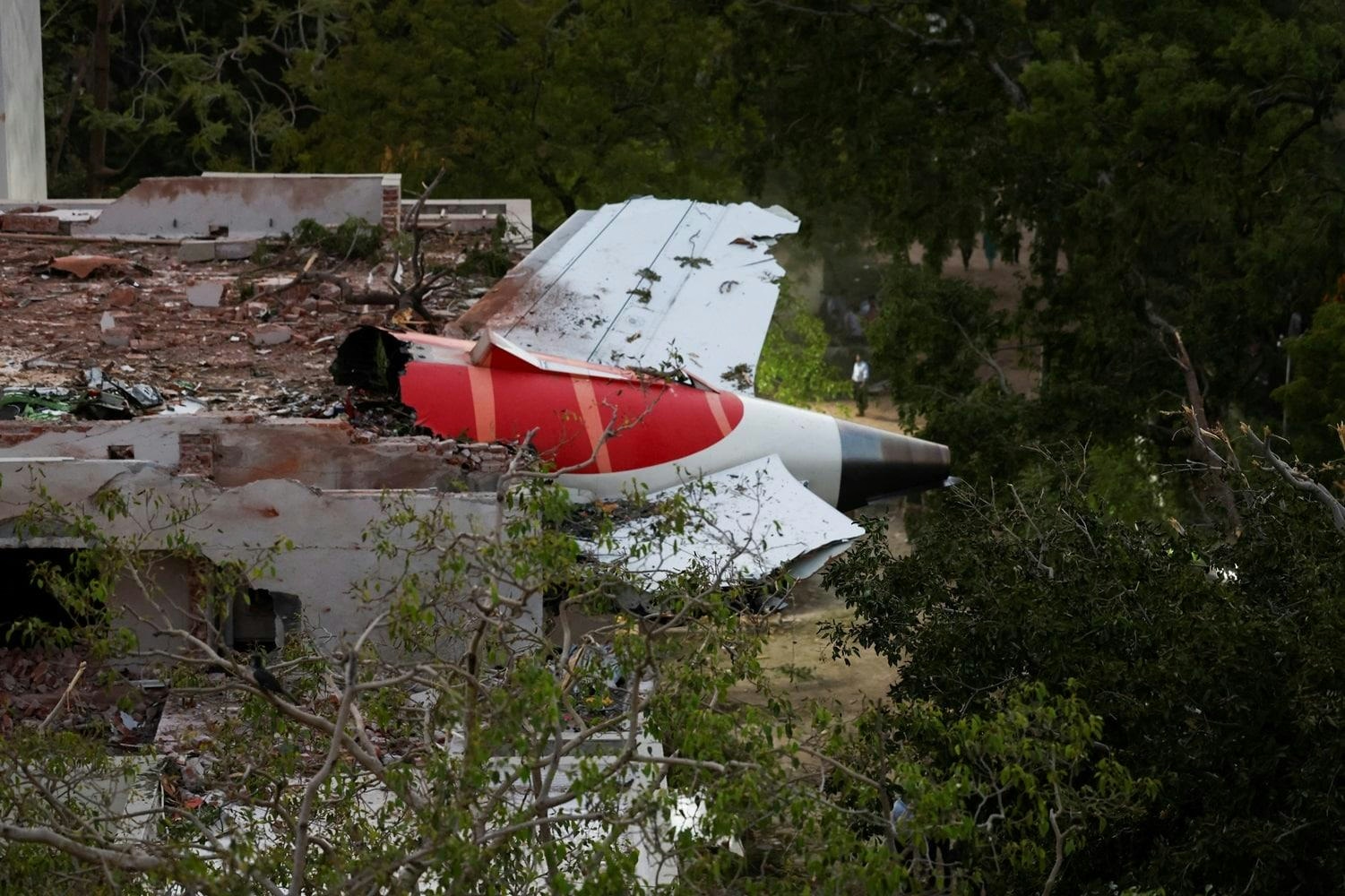
India Denies Entry to UN Investigator in Air India AI-171 Crash Probe
India Denies UN Investigator Access in Air India AI-171 Crash Inquiry
India has declined to grant entry to a United Nations investigator seeking to assist in the investigation of the Air India AI-171 crash, according to two senior sources familiar with the situation. This decision comes amid growing international scrutiny over the transparency and management of the probe into the disaster, which claimed at least 275 lives and stands as the deadliest aviation accident worldwide in the past decade.
ICAO’s Offer and India’s Response
Earlier this week, the International Civil Aviation Organization (ICAO), a United Nations agency, made an unusual offer to deploy one of its investigators to support the inquiry into the Boeing 787-8 Dreamliner crash. Historically, ICAO investigators have been invited by affected countries in high-profile incidents, such as the 2014 downing of a Malaysian airliner and the 2020 Ukrainian jetliner tragedy. However, Indian authorities reportedly rejected ICAO’s offer for observer status in this case.
The Aircraft Accident Investigation Bureau (AAIB) of India, which is leading the investigation, has not responded to requests for comment. ICAO representatives were also unavailable for immediate comment.
Concerns Over Investigation Transparency
The Civil Aviation Ministry confirmed on Thursday that flight recorder data was downloaded approximately two weeks after the crash. Despite this, aviation safety experts have expressed concern over delays and a perceived lack of transparency in the analysis of the crucial black box data. The combined flight data recorder was recovered on June 13, with a second unit found on June 16. Uncertainty remains regarding whether the recorders will be analyzed domestically or in the United States, where the National Transportation Safety Board (NTSB) is also involved.
India’s government has held only a single press briefing on the incident, during which no questions were entertained, further fueling apprehensions about the openness of the investigation. Under international aviation regulations, specifically Annex 13, decisions concerning the location of flight recorder analysis are expected to be made promptly to facilitate timely evidence gathering and help prevent future accidents.
An anonymous official from the Aviation Ministry asserted that all ICAO protocols are being adhered to and that the media has been kept informed of significant developments. The official also noted that most air crashes result from multiple contributing factors and that a preliminary report is anticipated within 30 days of the accident.
Broader Implications for Aviation Safety and Industry Confidence
The crash has intensified scrutiny of Air India’s safety procedures as well as Boeing’s manufacturing standards. The incident has had immediate market repercussions, including a temporary decline in Air India’s stock prices and diminished passenger confidence. Competing airlines have responded by ramping up safety audits and launching marketing campaigns emphasizing their own safety records.
Beyond the immediate fallout, the tragedy has raised broader questions about the effectiveness of India’s aviation regulatory framework. There is growing speculation that the incident may prompt significant regulatory reforms. The disaster threatens to reshape the Indian aviation and tourism sectors, as both industry stakeholders and government officials face mounting pressure to restore public trust and enforce stringent safety standards.

Canterbury to Establish Permanent Test Flight Facility, Boosting Aerospace Innovation
Canterbury to Establish Permanent Test Flight Facility, Boosting Aerospace Innovation
Permanent Airspace Allocation for Aerospace Testing
Canterbury is set to become a pivotal hub for aerospace innovation with the permanent allocation of part of its airspace for test flights. The Minister for Space, Judith Collins, announced that the Civil Aviation Authority (CAA) has granted a permanent special use airspace designation for the Tāwhaki National Aerospace Centre at Lake Ellesmere, along with other aviation companies in the region. This move is designed to provide these organisations with the necessary freedom to safely trial next-generation aerospace technologies.
Starting 7 August, six 'Restricted and Danger Areas' will be permanently designated within Canterbury’s airspace. These zones will only be activated as required to minimise disruption to other airspace users. The Restricted Areas will enable Tāwhaki to control aircraft entry, exit, and operations, while the Danger Areas will serve to alert pilots to potential hazards, ensuring safety remains paramount.
Growth and Strategic Importance of Canterbury’s Aerospace Sector
Minister Collins emphasised Canterbury’s rapid expansion in the space sector, highlighting the region’s strategic advantages. Its geographic location, combined with test-bed facilities, research and innovation capabilities, manufacturing infrastructure, and a skilled workforce, positions Canterbury as an ideal launchpad for both space and advanced aviation industries. She noted that the space sector has grown by 53 percent over the five years leading to 2023-24, contributing more than NZ$2.47 billion to the economy. The advanced aviation sector also made a significant contribution of NZ$480 million during the same period, with some overlap between the two sectors.
John Holt, executive director of Tāwhaki, described the airspace allocation as a critical milestone for the sector. He stressed that regulatory infrastructure is as essential as physical infrastructure in fostering growth. Holt characterised the Special Use Airspace as a forward-looking and pragmatic development that prioritises safety while unlocking substantial opportunities for New Zealand’s aerospace industry.
Challenges and International Context
Despite the promising outlook, establishing a permanent test flight facility in Canterbury faces several challenges. Securing adequate funding, navigating complex regulatory frameworks, and attracting skilled personnel to the region remain significant hurdles. The initiative is expected to attract increased interest from aerospace companies seeking to utilise the new facility for innovation and testing. However, it may also prompt regional competitors to enhance their own facilities or lobby against regulatory changes that favour Canterbury.
The government’s support for the space sector aligns with a broader global trend towards aerospace innovation. Recent commitments by the UK government to fund aerospace research and development, alongside reforms in industrial strategy, reflect an international environment conducive to such initiatives.
Looking ahead, the New Zealand Aerospace Summit scheduled for October in Christchurch is anticipated to draw an international audience. The event will provide an important platform to showcase Canterbury’s unique strengths to innovators in advanced aviation. Public consultation on the proposed changes to the Civil Aviation Rules remains open until 27 July.
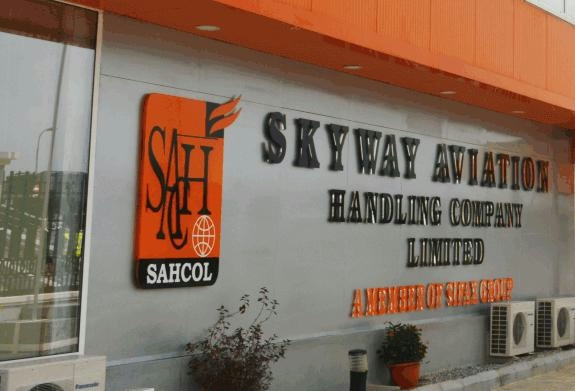
SAHCO Reports 74.8% Revenue Increase Amid Easing Supply Chain Issues
SAHCO Reports 74.8% Revenue Increase Amid Easing Supply Chain Issues
Skyway Aviation Handling Company (SAHCO) Plc has announced a significant financial upturn for the 2024 fiscal year, with revenues reaching N28.9 billion, marking a 74.8% increase from N16.5 billion in 2023. This growth also represents a 260.3% rise compared to the N11.1 billion recorded in 2022. The company revealed these figures during its 15th Annual General Meeting (AGM), held virtually on Thursday.
Financial Performance and Shareholder Returns
SAHCO’s gross profit surged to N16.3 billion in 2024, up from N8.1 billion the previous year, while operating profit before income tax stood at N6.4 billion. The company’s total assets expanded to N41.7 billion from N34 billion in 2023. Reflecting confidence in its financial health, shareholders approved a final dividend of 60 kobo per share.
Chairman Taiwo Afolabi attributed the company’s strong performance to the gradual easing of global supply chain disruptions and a rebound in consumer demand, aligning with the International Monetary Fund’s projection of 3.2% global GDP growth for 2024. He emphasized Nigeria’s position as one of Africa’s largest aviation markets, driven by increasing passenger traffic and expanding international routes. Nonetheless, Afolabi cautioned that the sector continues to grapple with high operational costs, infrastructure deficiencies, and foreign exchange constraints.
“A Nigerian entrepreneur once had to endure long layovers and multiple connections to secure international deals. Today, improved connectivity allows businesses to move faster, boosting trade and investment,” Afolabi remarked. He underscored the importance of sustained focus on efficiency, innovation, and resilience to maintain Nigeria’s competitive edge in the global aviation industry.
Industry Context and Future Outlook
SAHCO’s growth unfolds against a backdrop of a complex global logistics environment. Although supply chain bottlenecks have eased, the sector faces persistent challenges such as tariff disputes and ongoing uncertainty within logistics networks. The U.S. Federal Reserve’s decision to maintain steady interest rates has contributed to a cautious market outlook. Additionally, strategic mergers and acquisitions in transportation and logistics are increasingly influenced by market volatility. Legislative changes, including the U.S. Senate’s move to end California’s truck emissions regulations, may also reshape industry standards. Furthermore, continuing U.S.-China trade tensions exert pressure on global technology supply chains, while mixed deal activity in the first quarter highlights the sector’s ongoing instability.
Looking ahead, SAHCO plans to expand its footprint across Africa by capitalizing on regional aviation opportunities. The company intends to invest in technology and digital transformation initiatives aimed at enhancing operational efficiency and improving customer experience.
Managing Director Adenike Aboderin highlighted substantial investments in new Ground Support Equipment (GSE) over the past year, including towed passenger steps, belt loaders, pallet dollies, forklifts, and cargo tractors. She emphasized that these acquisitions are critical to meeting rising operational demands while ensuring that services remain safe, efficient, and environmentally sustainable.
For 2025, SAHCO reaffirmed its commitment to reinforcing its core values and sustaining growth, even as the broader logistics and aviation sectors continue to navigate global uncertainties.

San Diego Introduces New Airline and Longest Narrowbody Flights
San Diego Welcomes Copa Airlines and Its Longest Narrowbody Flights
On June 25, Copa Airlines inaugurated its first nonstop service between Panama City and San Diego, establishing an unprecedented direct connection between San Diego and Central America. This new route expands Copa’s presence in California, joining its existing services to San Francisco and Los Angeles. With this addition, the Panamanian carrier now operates to 20 airports across the United States and Canada, including San Juan, Puerto Rico, thereby broadening its North American network.
The San Diego route is served four times weekly using Copa’s Boeing 737 MAX 9, a 174-seat aircraft and the airline’s highest-capacity narrowbody model. The deployment of this aircraft signals robust demand and suggests the possibility of increased flight frequency in the future. According to Cirium Diio data, Copa plans to operate 279 weekly flights to the US and Canada in July, with up to 41 daily departures—surpassing any previous July schedule.
Competitive Landscape and Market Dynamics
Copa’s entry into the San Diego market introduces new competition to a region traditionally dominated by carriers such as Southwest and Delta, both of which maintain significant market share and strong customer loyalty in Southern California. The arrival of Copa is likely to elicit mixed reactions among travelers; while some will appreciate the expanded options and direct access to Central America, others may remain committed to their preferred airlines. This dynamic could prompt incumbent carriers to respond with fare adjustments or service enhancements to protect their market positions.
Southwest Airlines, for example, has recently encountered internal challenges, including criticism from flight attendants regarding operational changes, which may affect its reputation and customer satisfaction. Meanwhile, Delta is concentrating on expanding its long-haul network with new routes from Seattle to Barcelona and Rome, potentially diverting some attention from Copa’s new San Diego offering.
Route Details and Operational Considerations
Copa’s San Diego service ranks as its fourth-longest route to the US or Canada in terms of both distance and scheduled block time. The flight schedule includes early morning arrivals in Panama City at 05:25 local time, which may result in extended layovers for passengers connecting to South American destinations. This timing could be a disadvantage for travelers seeking efficient onward connections.
The current flight schedule operates on Mondays, Wednesdays, Fridays, and Sundays, with Panama City departures at 13:15 arriving in San Diego at 17:44. The return flight departs San Diego at 21:03, arriving in Panama City at 05:25 the following day.
In 2022, over 340,000 passengers traveled between San Diego and destinations in the Caribbean, Central America, and South America via connecting hubs. Copa’s direct service aims to capture a portion of this market, although the early arrival time in Panama City may limit its appeal for some travelers.
San Diego’s Longest Narrowbody Flights
Between July and December, Copa’s Panama City route will represent the longest narrowbody flight departing from San Diego. Scheduled block times will increase from 6 hours and 29 minutes in July and August to 6 hours and 52 minutes in December, reflecting seasonal headwinds and operational padding to maintain punctuality. Other notable long narrowbody routes from San Diego include flights to Boston, with JetBlue operating block times of up to 6 hours and 40 minutes, varying by carrier.
As Copa Airlines establishes its foothold in San Diego, the coming months will provide insight into how the market adapts—whether through intensified competition, service improvements, or shifts in passenger preferences.
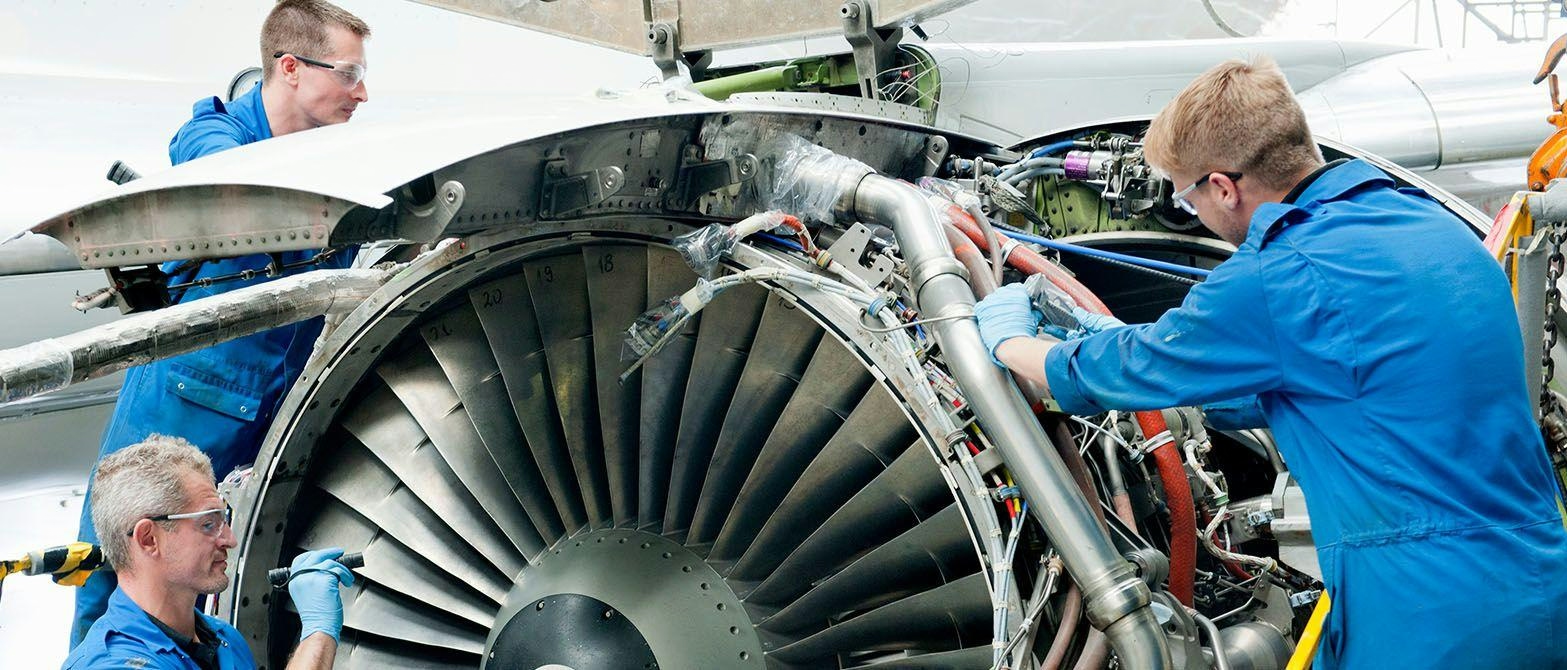
Building a Strong Aviation Maintenance Industry in India
Building a Strong Aviation Maintenance Industry in India
Rapid Growth and Emerging Challenges
India’s aviation sector is experiencing unprecedented expansion, with the number of operational airports increasing from 74 to 220 in recent years. This rapid growth, while indicative of the sector’s potential, has simultaneously exposed significant deficiencies in the country’s aviation maintenance, repair, and overhaul (MRO) infrastructure and regulatory framework. The Directorate General of Civil Aviation (DGCA), the primary authority responsible for aviation safety and enforcement of MRO standards, is currently facing a critical shortage of personnel, with a vacancy rate of 53 percent as reported by a recent Parliamentary Standing Committee. This acute understaffing raises serious concerns about the regulator’s capacity to conduct thorough audits of MRO providers, ensure compliance with complex civil aviation regulations, and effectively manage the sector’s accelerating growth.
The regulatory challenges extend beyond the DGCA. Both the Bureau of Civil Aviation Security and the Aircraft Accident Investigation Bureau are similarly understaffed, exacerbating systemic weaknesses in oversight and the ability to address maintenance-related safety issues. Recent air-safety audits have brought these vulnerabilities to light, emphasizing the urgent need for strengthened regulatory mechanisms to safeguard aviation operations.
Structural and Industry Constraints
The difficulties confronting India’s domestic MRO industry are not limited to regulatory inadequacies. A report by Niti Aayog highlights several structural impediments, including monopolistic practices in manufacturing that restrict access to critical technical data and manuals. Additionally, the sector suffers from insufficient infrastructure, such as a lack of modern hangars and specialized training facilities, which hampers the development of advanced maintenance capabilities. Compounding these challenges is the limited international recognition of DGCA certifications, which restricts India’s ability to compete for high-value MRO contracts on the global stage.
The demand for skilled aviation professionals is projected to rise sharply in the coming decades. Industry forecasts estimate a global requirement for 674,000 new pilots and 716,000 new maintenance technicians over the next twenty years. As one of the fastest-growing aviation markets, India must significantly expand its training and workforce development initiatives to meet this demand. The aviation smart maintenance market is anticipated to reach USD 12 billion by 2034, reflecting a shift toward technology-driven maintenance solutions. In this competitive environment, international players are expected to increase investments in training and safety management systems, raising the standards that India’s MRO sector must meet to remain viable.
Policy Measures and the Path Forward
Recent policy interventions, such as reductions in the Goods and Services Tax (GST) on MRO services, represent positive but insufficient steps toward addressing the sector’s foundational challenges. The safety of millions of passengers hinges on a well-resourced regulatory body and a resilient MRO ecosystem. Incidents such as the recent Air India crash starkly illustrate that regulatory vacancies and infrastructure gaps are not mere administrative failings but critical vulnerabilities with potentially fatal consequences.
To build a robust aviation maintenance industry, India must urgently invest in enhancing regulatory capacity, upgrading infrastructure, and expanding workforce training programs. These investments are essential commitments to ensure the safety, reliability, and sustainability of the country’s rapidly expanding aviation sector.

Economic Drivers in Mobile County
Economic Drivers in Mobile County
Mobile County has established itself as a dynamic center of diverse industries, including aviation, shipbuilding, chemicals, metals, paper, and logistics, all anchored by the strategic Port of Mobile. The region has notably become the world’s fourth-largest manufacturing hub for commercial aviation, with aerospace emerging as its fastest-growing sector. Over the past five years, major aerospace employers have expanded their workforce by 56%, underscoring the sector’s rapid development. Key industry leaders such as the Airbus US Manufacturing Facility, which employs over 2,000 people, and Continental Aerospace Technologies, with more than 375 employees, are supported by an extensive network of supplier firms that contribute to the region’s industrial ecosystem.
Education and Workforce Development
Education plays a critical role in sustaining Mobile County’s industrial growth. Local high schools and colleges have increasingly prioritized aerospace-focused curricula to prepare students for careers in aviation technology. Institutions such as Bishop State Community College and Coastal Alabama Community College offer specialized programs aligned with the region’s workforce demands. The Alabama Aviation Center at Coastal Alabama provides targeted training in aviation manufacturing, airframe, and powerplant technology. Additionally, Bishop State offers adult education and dual enrollment pathways that lead to aerospace manufacturing certificates, ensuring a steady pipeline of skilled workers to support the expanding aerospace sector.
The Port of Mobile and Industrial Infrastructure
The Port of Mobile, established in 1928 and managed by the Alabama Port Authority, remains a vital economic engine for the region and the state. It generates $98.3 billion annually and supports over 351,000 jobs across Alabama. The port’s extensive infrastructure includes immediate access to major interstate highways, five Class I railroads, four short-line railroads, and nearly 15,000 miles of inland waterways. This connectivity enables the port to reach half of the U.S. population within 48 hours of cargo arrival, making it a critical logistics hub. Over the past two decades, more than $1.4 billion has been invested in modernizing and expanding port facilities. Its proximity to the Mobile Aeroplex at Brookley further enhances its role as a center for logistics and industrial activity.
Shipbuilding and Manufacturing Sectors
Shipbuilding continues to be a cornerstone of Mobile’s economy, with Austal USA standing as the county’s largest industrial employer. Other prominent companies such as Silver Ships, Master Boat Builders, and Birdon maintain the region’s longstanding tradition of vessel construction along the Gulf Coast. The chemical and metal manufacturing sectors are equally robust, with major producers including Outokumpu Stainless, AM/NS Calvert, and SSAB Americas. In 2024, ArcelorMittal announced plans to build a $1 billion electrical steel plant near Calvert, with construction slated to begin in 2025 and operations expected by 2027. The Alabama Gulf Coast chemical corridor, which extends 60 miles through the Mobile area, hosts leading chemical manufacturers such as Evonik Corp., Lenzing Fibers, and BASF. Chemical manufacturing represents Mobile’s top export and ranks as Alabama’s second-largest export sector. Kimberly-Clark Corp. also maintains a significant presence in the county, producing paper products for national distribution.
Emerging Challenges and Industry Responses
Despite these economic strengths, Mobile County’s key industries face challenges from shifting market dynamics. Emerging technologies such as active safety systems, digital agriculture, and regulatory changes in medical device sectors—including ostomy drainage bags—have the potential to alter consumer preferences and investment strategies. In response, local industries are likely to pursue strategic alliances, innovate their product offerings, and explore new markets to sustain their competitive advantage amid a rapidly evolving economic landscape.
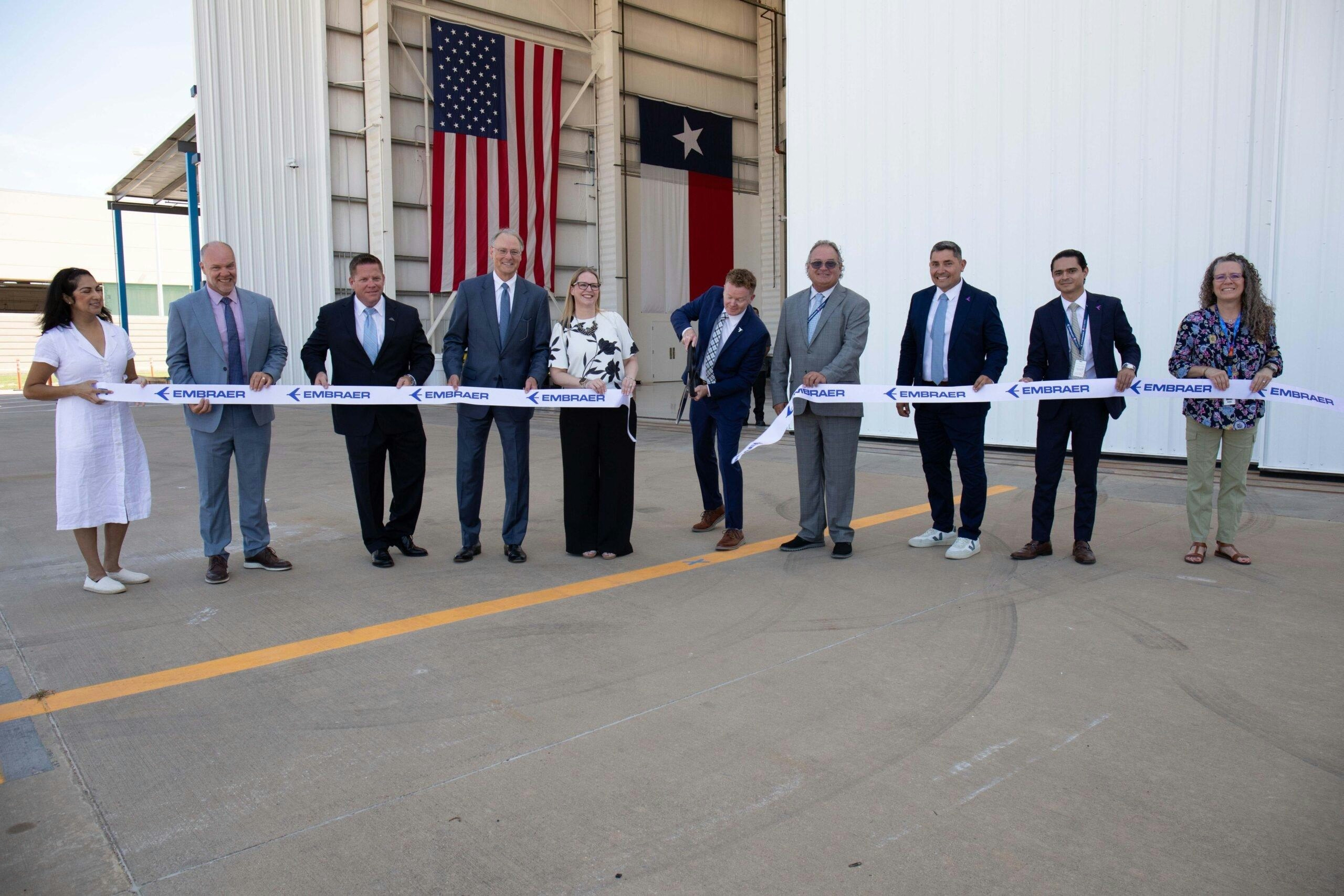
Embraer Begins Operations at New Fort Worth MRO Facility
Embraer Commences Operations at New Fort Worth MRO Facility
Embraer has officially launched operations at its newly established maintenance, repair, and overhaul (MRO) facility located at Perot Field Alliance Airport (AFW) in Fort Worth, Texas. The $70 million center began servicing clients immediately, securing its first significant contract with U.S. regional carrier CommuteAir just two days after the grand opening on June 24. CommuteAir, which operates a fleet of 59 ERJ145 aircraft and also flies E170s, had previously engaged Embraer for inventory management and repair services in late 2023. This new agreement further strengthens the partnership between the two companies.
The Fort Worth facility is a strategic expansion designed to increase Embraer’s U.S. service capacity by 53%, reflecting the company’s response to rising demand in the regional jet MRO market. Embraer’s Services & Support division reported a record backlog of $4.6 billion last year, driven by long-term contracts with operators such as CommuteAir and Delta Connection. The new site marks Embraer’s thirteenth owned service center globally and is expected to generate approximately 250 new aviation jobs in the region.
Market Growth and Competitive Challenges
Embraer’s Market Outlook 2025, released ahead of the Paris Air Show, projects the delivery of 2,960 new aircraft between 2025 and 2044, including 2,680 jets and 280 turboprops. The company anticipates its in-service fleet will expand by more than 13% over the next two decades, reaching 3,230 aircraft by 2044, up from 2,850 this year. This growth underpins Embraer’s investment in expanding its service infrastructure, including the Fort Worth facility.
Despite these positive developments, Embraer faces increasing competition in the MRO sector. Competitors such as Joramco have broadened their capabilities to service Embraer’s E190-E2 aircraft, while some airlines, including LOT Polish Airlines, have shifted portions of their regional fleet from Embraer to Airbus, potentially affecting Embraer’s market share. Nevertheless, Embraer’s recent contract wins for its E-Jets and the C-390 Millennium military transport aircraft are expected to bolster its competitive position.
Expanding Global Service Network and Regional Developments
Embraer continues to enhance its global service network. In April, the company authorized Polish MRO provider LOT Aircraft Maintenance Services as a service center for E2 aircraft, following a memorandum of understanding signed in March to establish Poland as a European center of excellence for Embraer. The company is also exploring the establishment of an E-Jet E2 landing gear overhaul facility in Poland, complementing broader initiatives to expand regional capabilities in manufacturing, assembly, maintenance, passenger-to-freighter conversions, and electric vertical take-off and landing (eVTOL) aircraft.
The Fort Worth region is also witnessing growth from other industry players. On June 24, MTU Maintenance announced a 30-year lease to expand its North American operations at AFW, committing $120 million to modernize its 43,000 square meter facility. The site, formerly known as MTU Maintenance Dallas, will be renamed MTU Maintenance Fort Worth on September 1 and is projected to create 1,200 new jobs locally.
As Embraer scales up its operations in Fort Worth, the company is positioning itself to meet the increasing demand for MRO services amid a competitive and evolving aerospace market.

American Airlines Flight Makes Emergency Landing After Engine Fire
American Airlines Flight Makes Emergency Landing After Engine Fire
An American Airlines flight departing from Las Vegas was compelled to make an emergency landing on Wednesday after smoke was observed emanating from one of its engines shortly after takeoff. Passengers described the ordeal as “extremely tense,” with one traveler recounting to NBC News that “it felt like forever, and every time that the engine popped it sounded like gunshots.” The incident unfolded rapidly, with crew members responding promptly to secure the safety of all on board.
Immediate Response and Safety Concerns
The emergency landing has prompted immediate concerns for American Airlines, which now faces the dual challenge of addressing passenger anxieties and reinforcing confidence in its safety protocols. The airline has emphasized that ensuring the safety of future flights remains a top priority as it investigates the cause of the engine fire and undertakes a thorough review of its maintenance procedures.
Industry and Regulatory Implications
Aviation experts note that incidents of this nature typically attract scrutiny from regulatory authorities, who may initiate formal investigations to evaluate compliance with safety standards. In addition to regulatory oversight, American Airlines could encounter potential insurance claims related to the emergency landing and any associated damages.
The event has also drawn the attention of competing carriers, some of which may seek to underscore their own safety records in the wake of the incident. This competitive environment highlights the critical importance of transparency and proactive communication for American Airlines as it navigates public perception and regulatory demands following the emergency landing.
For the latest updates on the investigation and the airline’s response, readers are advised to consult official statements and ongoing news reports.
Ask AeroGenie